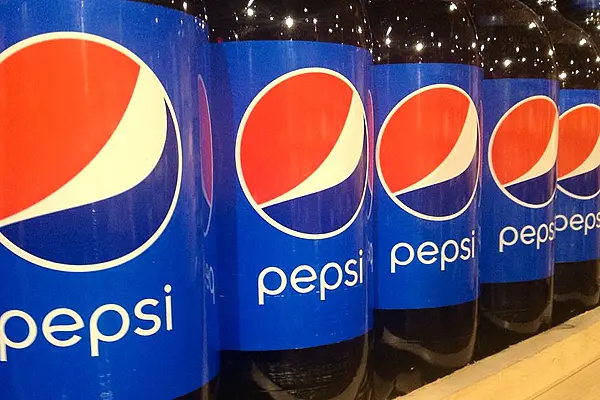PepsiCo Inc.’s snacks are having to pick up more of the slack for its ailing beverages.
The company posted sales and earnings that topped analysts’ estimates last quarter, helped by an uptick in volume at its Frito-Lay business in North America. The snack growth helped offset continued declines at the Purchase, New York-based company’s drinks business. Still, a disappointing forecast suggests that PepsiCo has more struggles ahead.
The story is familiar: As sugar-wary consumers turn away from sweet beverages, the company has relied more on food to bolster results. The maker of Mountain Dew and Cheetos is also benefiting from a belt-tightening programme, including job cuts, with Chief Executive Officer Indra Nooyi pursuing at least $1 billion in annual savings.
“We delivered these results in the midst of a dynamic retail environment and rapidly shifting consumer landscape,” Nooyi said in a statement.
PepsiCo’s success with snacks is a sign that Frito Lay is innovating -- examples include Organic Doritos and yogurt-based crackers -- while simultaneously strengthening its core brands. But it hasn’t been able to pull off the same trick on the beverage side. North America Beverage sales volumes were down 2% in the fourth quarter.
Part of the problem may have been that PepsiCo shifted too much of its focus away from core brands toward newer drink concepts, according to Chief Financial Officer Hugh Johnston.
“We think that they’re still terrific ideas -- they’re still tracking well,” he said in a phone interview. “But we can’t take our eye off the ball on the bigger brands.”
Core earnings amounted to $1.31 share in latest quarter. Analysts estimated $1.30, on average. Revenue was $19.5 billion, compared with analysts’ prediction of $19.4 billion.
Tepid Outlook
PepsiCo’s forecast for this year was less impressive. The company sees earnings of $5.70 a share, 8 cents short of the average Wall Street estimate. Still, the company’s projection is higher than it has guided in the past five years, Johnston said.
The stock was little changed on Tuesday (February 13), trading at $112.04 as of 9:40 a.m. in New York. It had lost 6.7% this year through Monday’s (February 12) close.
The company also announced that it will pay bonuses of up to $1,000 for some employees following the U.S. tax overhaul, joining companies such as Home Depot Inc. and Walt Disney Co. in doling out perks.
The influx of cash from lower corporate tax rates will also go toward making PepsiCo a more digitized organization, Johnston said. That will include training programs for employees and investments in e-commerce. PepsiCo will also increase capital spending by about 20% compared with a year ago, he said.
PepsiCo and beverage rival Coca-Cola Co. are both aiming to solve the declining popularity of their products with new innovations. Consumption of carbonated soft drinks fell to a 31-year low in the U.S. in 2016, according to Beverage-Digest, a trade publication.
PepsiCo has set a limit of 100 calories per 12-ounce serving for two-thirds of its beverages, a goal it seeks to meet by 2025. The company is also pledging to reduce sodium and saturated fat in its snacks.
Its new sparkling water, Bubly, targets consumers who want better-for-you products -- a group that’s driven the growth of National Beverage Corp.’s LaCroix. But LaCroix’s success has caused competition to heat up in the segment: Nestle SA, which owns Perrier and Poland Spring, is also boosting its bubbly offerings through its regional water brands.
Even with the new products, shoppers are likely to see more of the old standbys, Johnston said.
The North America Beverages unit will “see steady improvement over the next several quarters,” he said. “And you’ll see us continue to move both marketing dollars and shelf space -- whether it’s displays or coolers -- behind the biggest brands of Pepsi and Gatorade and Mountain Dew.”









